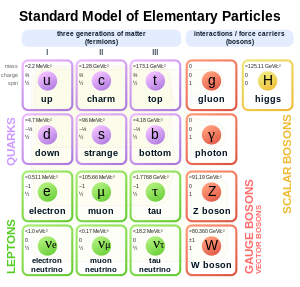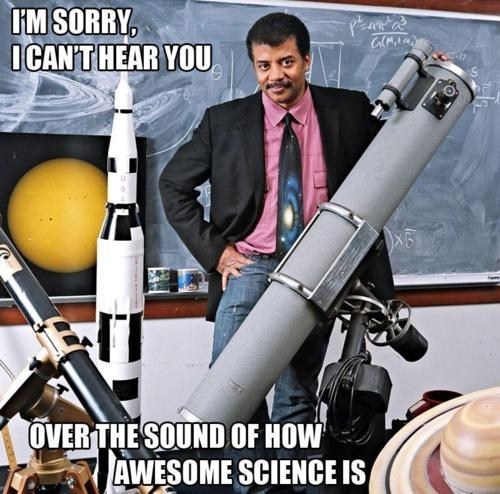“Math allows us to understand the universe.” - Minutephysics (youtube vlogger)
Last month I attended a Higgs Boson lecture at Florida
International University led by Dr. Pete Markowitz, Dr. Jorge Rodriquez, and
Dr. James Webb. In a nutshell, the Higgs Boson, also known as the God Particle,
is an elementary particle that may have been detected in 2012 by the Large
Hadron Collider at CERN. As of today, physicists theorize particles acquire
mass from interacting with the non-zero strength Higgs Boson Field (Higgs particles have yet to be discovered, which means this is still just a prediction).
 |
| Elementary Particles! Woohoo! |
Below we have the expanded version of the mathematical
framework for the Standard Model, which basically, is a sort of tapestry that
underpins the pattern for elementary particles (which include the fundamental
fermions: leptons, quarks, and fundamental boson: gauge, Higgs boson)
 |
| (according to Brian Cox in this video, this is one of the greatest scientific achievements of the 20th century) |
Let me explain. In that same video, Brian Cox states “this
equation allows you to calculate everything other than gravity that happens in
the universe.” Everything except gravity? Yes. Everything. “So you want to know
why the sky is blue, why nuclei stick together, […] in principle you should be
able to calculate it with that equation” (Brian Cox). Well, potentially since, as I stated previously,
 |
| Maybe it could even explain why your cat is so weird... |
Now that you know this, take a look at the equation again.
If the H.B. particle was discovered, and if you understood every symbol and number in there, you would be able to answer
those questions using the language of mathematics. You would be able to
describe and demonstrate why the sky is blue… using that severely hated
subject. Well, severely hated by a majority of students, though not all. But it
amazed me, and frustrated me to no end, that there was a huge part of physics
and astronomy, in my opinion the most vital and interesting, I could not begin
to comprehend because of a language barrier.
In this video formatted as a fun and quirky letter to
President Obama, Minutephysics discusses the gap in America’s high school
curriculum (or at least, most high school curriculums): discoveries in the
field of physics and astronomy passed the year 1865 are not taught. That means there
are a considerable amount of people out there who are unaware of the Big Bang
theory, quarks, the expansion of the universe, the fact that gravity bends
light, weak force, strong force, etc… (unless they do further readings on their
own time). He argues that by keeping the curriculum as is, teachers just
omitted all the awesome current realities that basically shape our scientific
world and universal view today.
In my high school it wasn't even required for students to
take physics. It wasn't until college, when I took a course on astronomy, that
I truly began to learn about these sciences and appreciate them. Even though I
needed extra tutoring for the mathematical portions of the lessons, it did not
detract from my growing interest for the subject. I continued to expand my
knowledge on physics and astronomy by reading online articles, blogs and
watching vlogs and TV shows (like Brian Cox’s: Wonders of the Solar System or
Morgan Freeman’s: Through the Wormhole). However, there is something vital that
gets omitted from all these mass media outlets: math. And that could be due to
a certain apprehension and fear towards it, similar to learning a foreign language
like Japanese or Chinese.
 |
| Daunting isn't it? I guess to the untrained eye it would be equally intimidating. |
I’m pretty sure I just went a bit off topic. But I would
like you, as a reader, to think about Minutephysics’ last few words to the
president in his video (starting on 3:07): “Between you and me Mr. President, I
think we should start making physics education more awesome here in the U.S.,
otherwise the next Carl Sagan or Richard Feynman will come from somewhere with
more educational foresight, maybe even the internet.” The internet is slowly
taking on the role of gap filler in the astronomy and physics educational
department. It’s up to date, widely accessible in several regions and
countries, and is slowly but surely filling up with college level lectures on
subjects like quantum mechanics and particle physics. Most important of all,
several of these lectures teach and tutor their audiences in pre-calculus, calculus
1, 2, and 3, and physics, filling in the language barrier as well. High school
physics should definitely be update, but perhaps teachers can integrate digital
education into their class lectures: the co-existence of an almost completely
limited and organized environment with the chaotic force of the exploratory and
creative internet.
AND REMEMBER: IT'S ALL A PROCESS. START FROM THE BASICS, THEN GO FROM THERE. SAME AS LEARNING A NEW LANGUAGE BRO....



